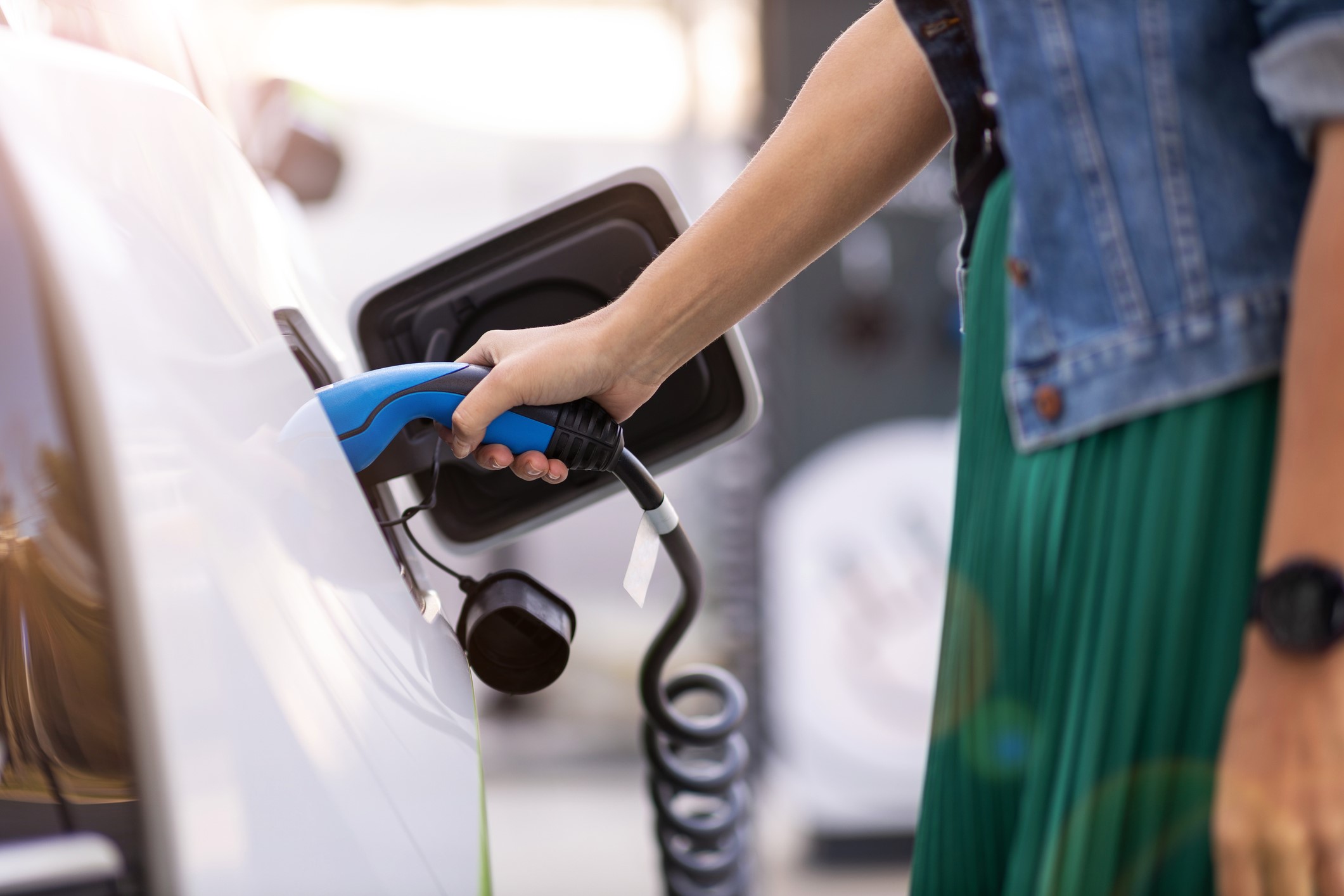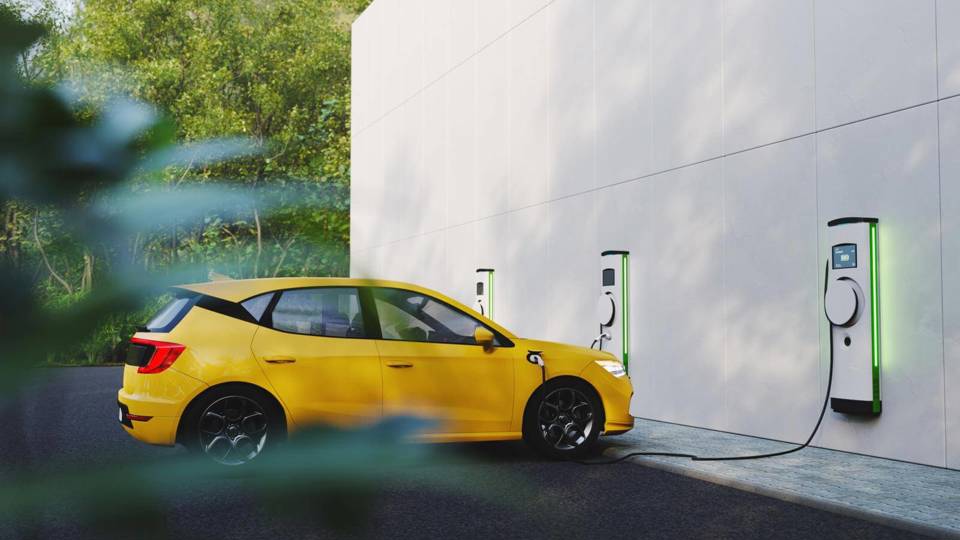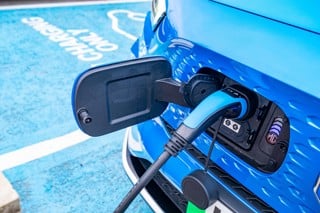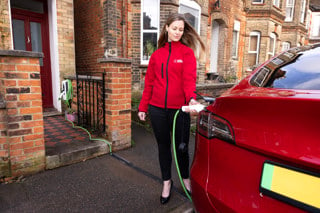The Government has spent £4.6 million helping employers install workplace charge points for electric vehicles (EVs) in the past year, new figures suggest.
Since the Workplace Charging Scheme (WCS) started in late 2016, a total of 16,235 vouchers, collectively worth £15.8m, have been redeemed helping to install 42,104 charge points.
Almost a quarter of the cash – some £4.64m – has been spent in the past year, with 5,824 vouchers redeemed, helping to pay for the installation of 13,396 sockets, a year-on-year increase of almost 3%.
In terms of regional distribution of WCS sockets, the South-East had the highest uptake with 6,330 sockets installed while Wales and Northern Ireland had the lowest, 1,593 and 809 respectively.
Together, Wales and Northern Ireland accounted for 5.7% of total sockets installed under the WCS in the UK.
When comparing the regional distribution per 100,000 of the population, London had the smallest number of WCS installations in the UK with 29 WCS installations per 100,000.
Scotland, Wales, and Northern Ireland also had fewer WCS installations than any English region except London.
The WCS is administered by the Office for Zero Emission Vehicles (OZEV) alongside the Electric Vehicle Chargepoint Grant (EVCG), and the On-Street Residential Chargepoint Scheme (ORCS).
As well as publishing new figures for the workplace grant, the Department for Transport (DfT) has also published new data for domestic and on-street funding.
On-street charge points
The On-Street Residential Charge point Scheme (ORCS) is available to all UK local authorities to fund up to 60% of the capital costs of installing on-street residential devices to ensure that those without private off-street parking are able to access reliable and affordable charging infrastructure.
Up until April 1, 2022, the scheme covered up to 75% of the capital costs of installing on-street residential charging devices.
As of April 1, 2023, it had funded the installation of 4,235 public charging devices since the scheme was established in 2017, with £16.1m distributed across 115 councils.
An additional 331 on-street devices were recorded as installed in the previous three months.
Of the councils that have already completed installations, 43 have had further funding awarded to install a further 7,482 charging devices with a grant value of £20.8m.
A further 83 local authorities have also been awarded grant funding, providing 6,504 on-street public charging devices with their installations yet to be completed. This represents a grant value of £34.9m.
The number of ORCS approved applications in London outnumber the rest of the country, and account for 56% of all approved applications.
The majority of these approved applications within the London Borough of Hammersmith and Fulham with 2,500 charging devices and London Borough of Barnet with 1,793 charging devices.
Domestic charging devices

The EV charge point grant (EVCG) provides funding of up to 75% towards the cost of installing electric vehicle smart charge points at domestic properties across the UK.
It replaced the Electric Vehicle Homecharge Scheme (EVHS) on April 1, 2022.
In the past year, up to April 1, 2023, there had been 2,347 sockets installed, worth £1.9m in grants.
Flats and renters account for 1,564 sockets, equating to 67% of installations.
Residential car parks account for 570 sockets – 24% of installations – with the remaining 9% from landlords’ applications whose grants had installed 213 sockets.
Its predecessor, the Electric Vehicle Homecharge Scheme (EVHS), provided grant funding for up to 75% of the cost of installing a charge point at domestic properties.
Since September 2014, a total of 339,775 domestic charging devices have been installed under the scheme, with a total grant value of £140.6m.
In addition to the EVHS, the Domestic Recharge Scheme (DRS) has also helped private plug-in vehicle owners offset the upfront cost of the purchase and installation of a dedicated recharging unit.
This funded an additional 40,333 domestic charging device installations between 2013 and 2014, before it was replaced by the EVHS.
Together, the EVHS and DRS have contributed to the installation of 380,108 domestic electric vehicle charging devices across the UK as of April 1, 2023.
The South-East had the highest number of charging device installations under the EVHS (63,246), accounting for 19% of total devices installed under the scheme.
Meanwhile, Northern Ireland had the lowest number of installations with 5,875 EVHS funded charging devices, accounting for just 1.7% of total EVHS funded devices.
The South East also had the highest number (1,716) of EVHS devices per 100,000 households whilst Northern Ireland and London had the lowest with less than 800 devices per 100,000 households.
> Interested in comparing electric vehicle data? Check out our EV tool.
> Interested in ensuring the efficient use of EVs. Check out our dedicated editorial sections: Insight & policy | EV news | Charging & infrastructure | Costs & incentives | Benefit-in-kind | EV case studies | EV road tests






















Login to comment
Comments
No comments have been made yet.